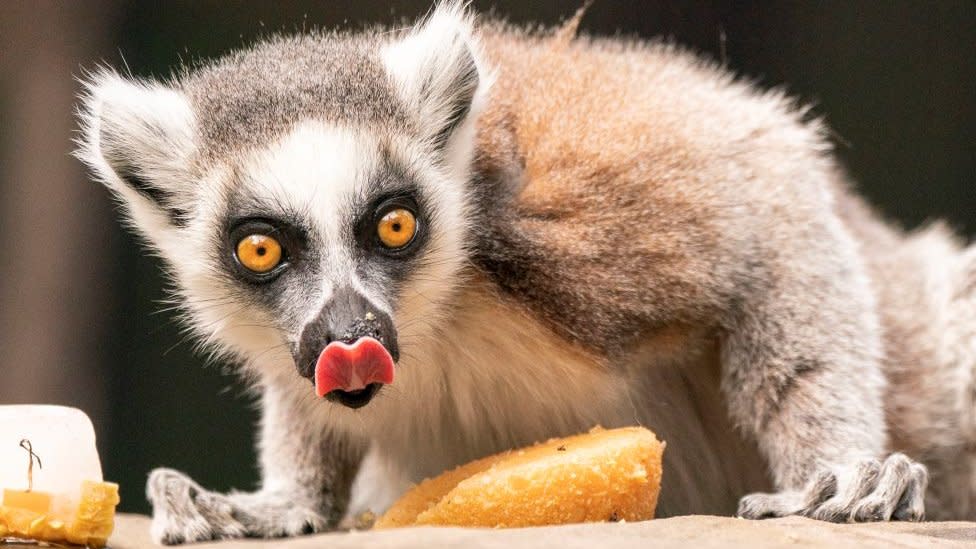Anglia Ruskin University study reveals secrets of lemur larynx

Lemurs are able to exaggerate their size due to the unique structure of their larynx, new research has found.
The small primates, native to Madagascar, are able to do so through an extra set of vocal folds.
Researchers from Kyoto University in Japan and Dr Jacob Dunn of Anglia Ruskin University (ARU) in Cambridge say the structure is "one of a kind".
The ability to mimic a lounder animal would have benefits for territory and finding mates, the study suggested.
Co-author Dr Dunn, associate professor in evolutionary biology at ARU, said: "All primates have a pair of vocal folds in their larynx, which vibrate to modify the air flow, and our research shows that all species of Madagascan lemurs have a unique additional pair of folds in the vestibular region, parallel to the vocal folds.
"This is likely to have developed because ancestors possessing these twin vocal folds may have had a selective advantage compared with members of the same species without this adaptation.
"We think these twin vocal folds serve to not only increase the complexity of their calls but crucially may also help a lemur exaggerate its body size, which would have significant benefits when competing for territory or mates."
The study involved taking CT scans of the larynges of different species of lemurs and constructing a silicone model to recreate and test the effect of the additional folds.
Lemurs are likely to have acquired what researchers called a "novel evolutionary adaption" from a common ancestor at least 35 million years ago, the study concluded.
Researchers believe the extra vocal folds are responsible for their being able to make a wide variety of calls, making vocalisation more efficient, meaning they spend less energy communicating over distances.
The silicon model of the lemurs' larynx allowed researchers to discover that it also lowers the frequency of the sounds produced, which makes a lemur sound larger than it actually is.
Follow Cambridgeshire news on Facebook, Instagram and X. Got a story? Email eastofenglandnews@bbc.co.uk or WhatsApp us on 0800 169 1830

